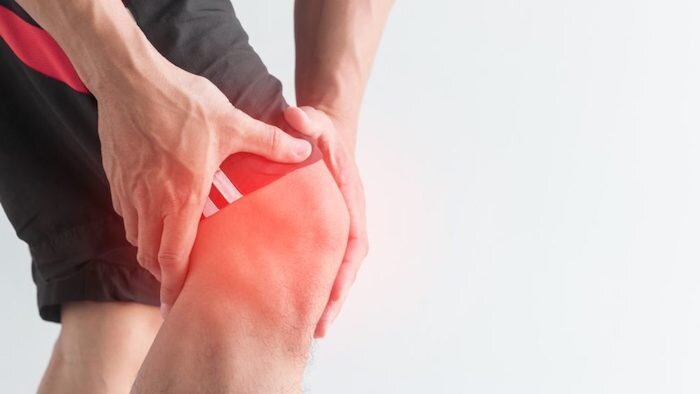
Frequent knee pain affects 25% of adults, often limiting their ability to walk and enjoy their daily activities. While knee pain is often caused by injuries or age-related degenerative conditions such as arthritis, everyday habits often play a role in the knee pain of patients.
Here are a few examples of bad habits that can trigger your knee pain, accelerate arthritic changes, and aggravate an existing weakness following an injury:
Wearing Shoes That Stress Your Knee
Your feet and knees form a functional unit, working together to support your body weight, provide balance, and absorb shock every time you walk, run, or jump.
The way your foot moves affects the alignment of your lower leg, which in turn, impacts the alignment of structures in your knee joint. Your knee needs to stay properly aligned so it can bear the stress of joint loading, or the force placed on your knee when you’re active.
Any type of unusual movement in your feet can lead to knee damage and pain. Your shoes also have a tremendous impact on the way your feet move.
Shoes that lead to knee pain include:
High-Heeled Shoes
You can’t help but experience some wobbling in your feet and ankles when you walk in high-heeled shoes. They also place incredible stress on your knee by shifting your center of gravity and changing your body posture. When you wear high heels, you walk with flexed knees, even during parts of your gait when your knees should be extended.
Rigid Shoes
You may need rigid shoes for certain foot conditions. But as a general guideline, rigid shoes limit your foot movement and place excessive stress on your knees.
Flat Shoes
Flat shoes typically don’t have much arch support. Walking with a flat foot strains your knee, while proper arch support allows normal shock absorption, ensures proper alignment, and evenly distributes the pressure on your knee.
Eating Foods That Fuel Inflammation
If you have knee arthritis, you also have inflammation in your knee joint and often throughout your body. The foods you eat can fight inflammation, or fuel it, accelerating the damaging inflammatory process and contributing to knee pain.
If you have knee arthritis, try to limit or eliminate these foods that trigger inflammation:
- Refined carbs (white bread and white rice)
- Fried foods
- Sweets
- Sugar-sweetened beverages
- Processed meat
- Alcohol
- Saturated fats
While you cut back on inflammatory foods, be sure to include plenty of fruits and vegetables in your diet because they fight inflammation. A few of the top anti-inflammatory foods are red and blue berries, leafy greens, nuts, and fish high in omega-3 fatty acids like salmon and tuna.
Engaging In The Wrong Type Of Exercise
There’s no doubt that exercise is essential for relieving knee pain by boosting blood flow, promoting mobility, and strengthening the muscles that support your knee.
But if you have knee pain, the type of exercise is also important. You want to carefully choose exercises that support your knee without causing further harm or pain.
There isn’t one type of exercise that’s best; it depends on the cause of your knee pain and your overall health. If your knee pain is caused by arthritis, water exercises, yoga, or walking may be the best choice. Rehabilitating from a sports injury requires a structured approach that improves your knee’s flexibility, strength, and balance.
If you engage in high-impact exercise and you start to experience knee pain, come talk with us. We can evaluate your knee and help you prevent damage to the cartilage and ligaments that develops from high-impact activities.
Failing To Warm Up Before Running
Running is hard on your knees, but you can prevent knee and leg pain by warming up with a light jog before hitting your full stride. Weak and tight muscles also put extra stress on your knees. You’ll avoid knee pain with a stretching and exercise regimen that works your quadriceps, hamstring, gluteal, calf, and hip muscles.
Precision Pain Care and Rehabilitation has two convenient locations in Richmond Hill – Queens and New Hyde Park – Long Island. Call the Queens office at (718) 215-1888, or (516) 419-4480 for the Long Island office, to arrange an appointment with our Interventional Pain Management Specialist, Dr. Jeffrey Chacko.













